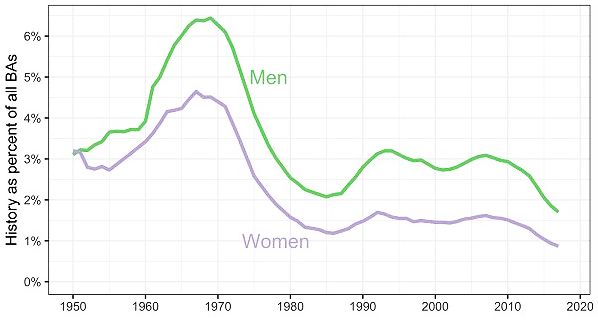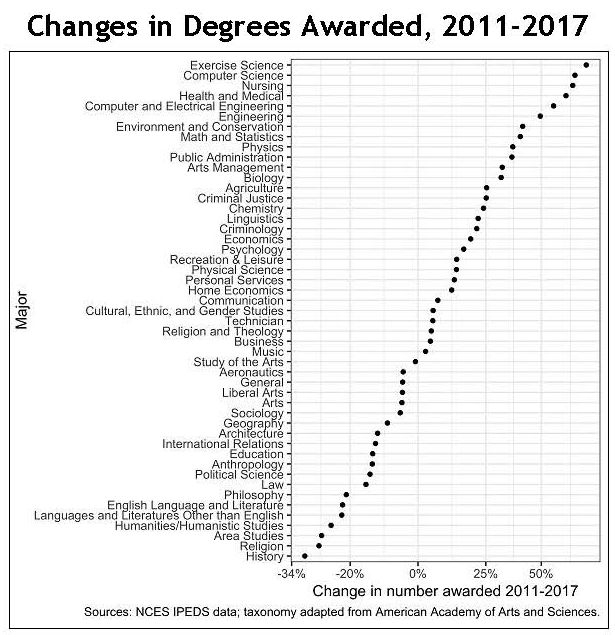We will never learn from the past if we've forgotten it. Now there's been a dramatic decline in the number of college students studying history.
-
Summer 2019
Volume64Issue3
My mother is 101 years old and in relatively good health, but has largely lost her memory. She doesn't recognize friends and family, nor understand where she is or what she's doing.
When I visit and re-introduce myself to my mother, I can't help but think of her memory loss in a broader context: our nation, like my mother in her individual case, is facing what David McCullough calls "collective amnesia." We are losing touch with the people and events who made us who we are. Like a person losing their memory, we're forgetting who our friends and adversaries are, and overlooking the lessons of past mistakes and successes.
A lot of attention has been paid to the recent surveys that show a marked decline in knowledge of American history and government. According to a recent Newsweek survey, 40% of Americans couldn’t correctly identify what countries we fought in World War II. And that was in a multiple-choice test.

Amazingly, our government officials know even less about civics than other Americans. Their average score on a recent ISI civics literacy test was 44%, compared to 49% for citizens who had not held elected office. Shockingly, 43% of officials couldn't identify correctly what the Electoral College does and 79% didn’t know the Bill of Rights prohibits establishing an official religion.
Sadly, the future of the past looks even more bleak. A recent analysis of data from the National Center for Education Statistics indicates that 10,362 fewer students earned history degrees in 2017 than in 2008.
Since the Great Recession, undergraduate majors have been shifting away from the humanities.
“Of all the fields I’ve looked at, history has fallen more than any other in the last six years,” says Benjamin Schmidt, a professor of history at Northeastern University who conducted the research. Even as overall university enrollments have grown, “history has seen its raw numbers erode heavily,” he write, especially since 2011-12.
The 2012 time frame is significant, according to Schmidt, because it’s the first period in which students who experienced the financial crisis could easily change their majors.

Why has the number of degrees fallen so rapidly? "The timing of the trend strongly suggests that students have changed their expectations of college majors in the aftermath of the economic shifts of 2008," says Benjamin Schmidt. "There seems to have been a longer-term rethinking of what majors can do for students."
Why should this matter? "We cannot truly know who we are or where we are going unless we know where we have been," David McCullough wrote in "History and Knowing Who We Are" in American Heritage.
John Kennedy also pointed out that there are many reasons to study the past in his 1963 essay "On History" in American Heritage.
"There is little that is more important for an American citizen to know than the history and traditions of his country," wrote Kennedy. "Without such knowledge, he stands uncertain and defenseless before the world, knowing neither where he has come from nor where he is going."
Studying history teaches students how to assess evidence and interpretations that conflict -- a skill so needed now.
How did people deal with our "ever-changing world" in the past? We can begin to figure that out by getting a better understanding of how the human record unfolded .
Kennedy reminded us that "History is the means by which a nation establishes its sense of identity and purpose ... a statement of the values and hopes which, having forged what has gone before, will now forecast what is to come."
Now, more than at any other time in my lifetime, we need to understand the stories that make us all Americans -- the courage and creativity that gave us the freedoms we enjoy.

